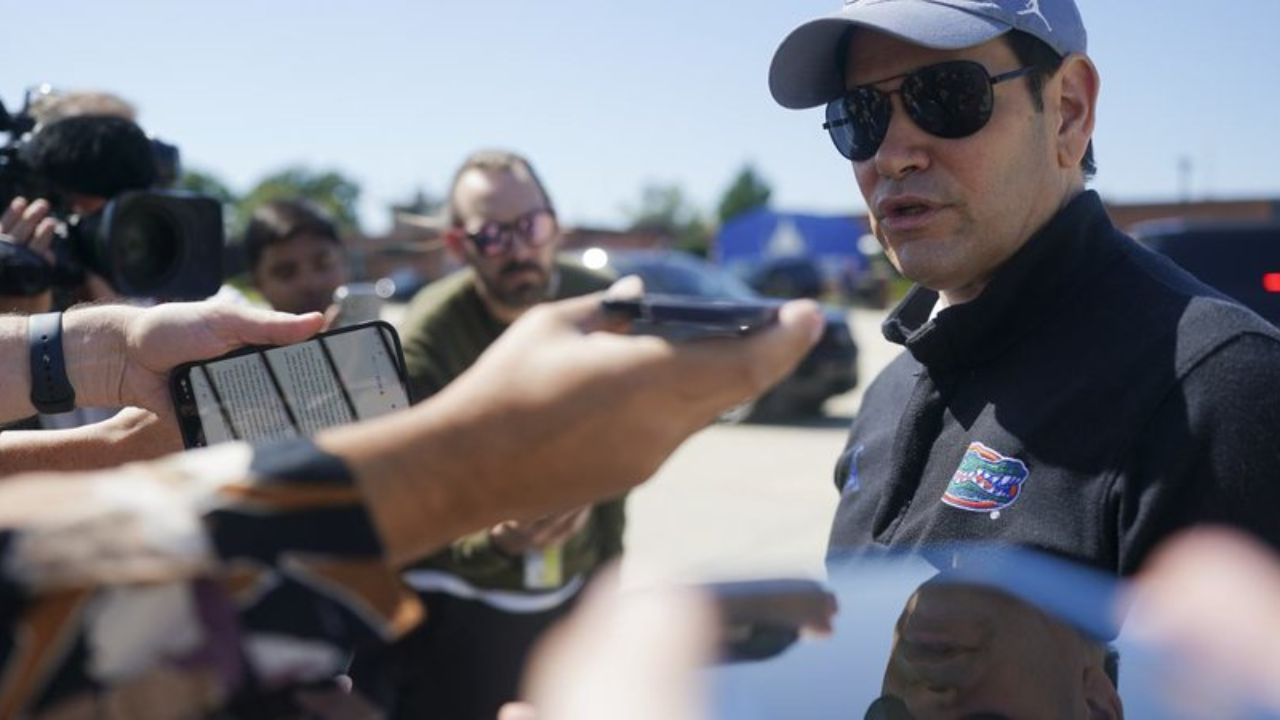
Post by : Naveen Mittal
U.S. Senator Marco Rubio’s visit to Israel comes at a pivotal moment in Middle Eastern geopolitics, as tensions escalate among Washington’s allies and humanitarian crises deepen in Gaza. The trip, part of a broader diplomatic initiative by former President Donald Trump’s administration, seeks to reaffirm America’s relationship with Israel while addressing mounting regional conflicts and humanitarian concerns.
As global powers prepare for high-level meetings at the United Nations, Rubio’s trip underscores the intricate web of alliances, disputes, and competing interests that define today’s Middle East. From hostage negotiations to ceasefire efforts and reconstruction debates, the stakes have never been higher.
This article provides a detailed analysis of Rubio’s objectives, the broader geopolitical backdrop, and the potential implications for U.S. policy, Israel’s actions, and regional stability.
Rubio’s visit to Israel is more than a symbolic gesture—it is a strategic move to navigate fraught relationships and ongoing crises. His discussions with Israeli leaders focus on three central themes:
Hostage negotiations with Hamas
Rebuilding Gaza after years of conflict
Managing geopolitical fallout among U.S. allies
In his remarks, Rubio emphasized that the U.S. relationship with Israel remains intact but must be recalibrated to address new challenges. He reaffirmed that "there are still 48 hostages that deserve to be released immediately, all at once," signaling the urgency of humanitarian concerns alongside political calculations.
The backdrop of Rubio’s visit is a devastating humanitarian crisis. Israel’s nearly two-year-long campaign in Gaza has resulted in over 64,000 deaths, according to local authorities. Hospitals are overwhelmed, food shortages are rampant, and a hunger crisis threatens vulnerable populations.
Human rights organizations, including the world's largest group of genocide scholars, have accused Israel of committing genocide, raising alarm bells among international bodies.
The violence stems from Hamas’s October 7, 2023 attacks on Israel, which killed 1,200 people and left 251 hostages in captivity. Despite numerous mediation attempts by the U.S. and Qatar, 48 hostages remain in Gaza, with little progress in recent months.
Rubio’s discussions with Israeli leaders come on the heels of a controversial airstrike that targeted Hamas political leaders in Doha, Qatar. The unilateral escalation, which U.S. officials described as "counterproductive", has undermined ceasefire efforts brokered by Qatar and derailed fragile negotiations.
The airstrike ignited outrage across the Arab world, complicating diplomatic relations and straining trust among U.S. allies. Qatar, once a crucial partner in mediating hostage negotiations, now faces pressure from both Washington and regional actors to reassert its influence.
Rubio’s meeting with Qatar’s Prime Minister Mohammed bin Abdulrahman Al-Thani earlier this week further highlighted the delicate balance between ensuring Israel’s security and preserving Qatar’s role in peace negotiations.
The plight of hostages remains at the heart of U.S. diplomacy. Rubio emphasized that resolving this crisis is not just a political necessity but a moral imperative.
Key challenges include:
Ensuring the immediate release of 48 hostages
Determining who will finance and oversee Gaza’s reconstruction
Avoiding actions that could embolden extremist factions or further destabilize the region
Rubio’s remarks that "what’s happened has happened" suggest a pragmatic approach, focused on finding solutions rather than assigning blame.
Once the hostages are freed and a ceasefire is secured, the task of rebuilding Gaza looms large. Rubio acknowledged that critical questions remain unanswered:
Who will finance the reconstruction?
Which parties will oversee the rebuilding process?
How can reconstruction avoid empowering militant factions?
These issues are central to global discussions, as donor countries, aid agencies, and regional powers navigate a landscape marked by poverty, destruction, and political manipulation.
Rubio’s visit also precedes crucial UN meetings where countries like France and Britain are expected to push for recognition of Palestinian statehood—a move strongly opposed by Israel.
The recognition debate has far-reaching implications:
It could legitimize Hamas’s political stance, complicating peace efforts
It risks triggering Israeli annexations in the West Bank, sought by hardline factions in Jerusalem
It could unravel the Abraham Accords, jeopardizing normalized relations between Israel and Gulf states like the UAE
Rubio’s concern that such recognition "would bolster Hamas" reflects broader fears that symbolic gestures could empower militant actors while undercutting moderate voices.
Adding to the complexity, Israeli Prime Minister Benjamin Netanyahu recently signed agreements to expand settlements in the West Bank—land Palestinians seek for statehood.
The move drew sharp condemnation from regional powers like the United Arab Emirates, which warned that settlement expansion would “cross a red line” and derail decades of diplomatic progress.
This expansion not only threatens the peace process but also risks further isolating Israel from global allies, especially at a time when humanitarian concerns are at the forefront.
The U.S. finds itself walking a diplomatic tightrope between Israel, Qatar, European allies, and Arab states. Each has its priorities:
Israel focuses on security and counterterrorism
Qatar emphasizes mediation and humanitarian relief
France and Britain advocate for Palestinian recognition and justice
The UAE and others seek to preserve diplomatic accords while avoiding escalation
Rubio’s visit signals Washington’s intent to manage these competing interests while safeguarding its strategic influence in the region.
Rubio’s discussions in Israel and beyond are not just about reaffirming alliances—they’re about shaping the region’s future.
Potential outcomes include:
Revitalized hostage negotiations that lead to peace talks
A UN framework addressing humanitarian reconstruction
New diplomatic efforts to preserve the Abraham Accords
Increased U.S. involvement in balancing security with human rights advocacy
However, risks remain. Missteps could deepen rifts, empower extremist factions, or embolden geopolitical rivals like Iran and Russia.
Rubio’s visit to Israel amid tensions among US Middle East allies highlights how intertwined politics, security, and humanitarian crises have become. As the world watches closely, the success or failure of these negotiations could set a precedent for how global powers address conflicts shaped by history, ideology, and economic interests.
With humanitarian concerns mounting and political lines hardening, Rubio’s approach will be closely scrutinized by allies, critics, and ordinary citizens alike. Whether peace, reconstruction, and justice prevail—or whether the region spirals further into discord—will depend on how deftly Washington balances compassion with strategic interests.
In these troubled times, Rubio’s trip offers both a challenge and an opportunity: to restore stability in one of the world’s most volatile regions while upholding the principles that define American diplomacy.

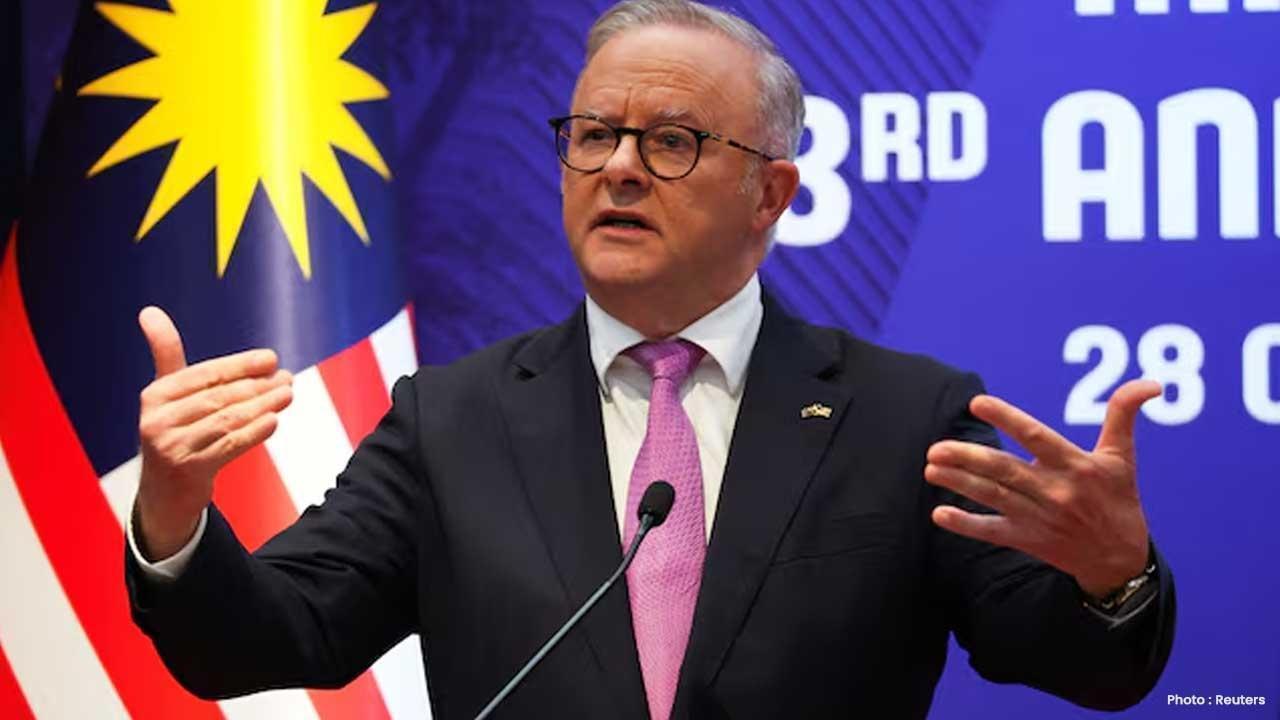

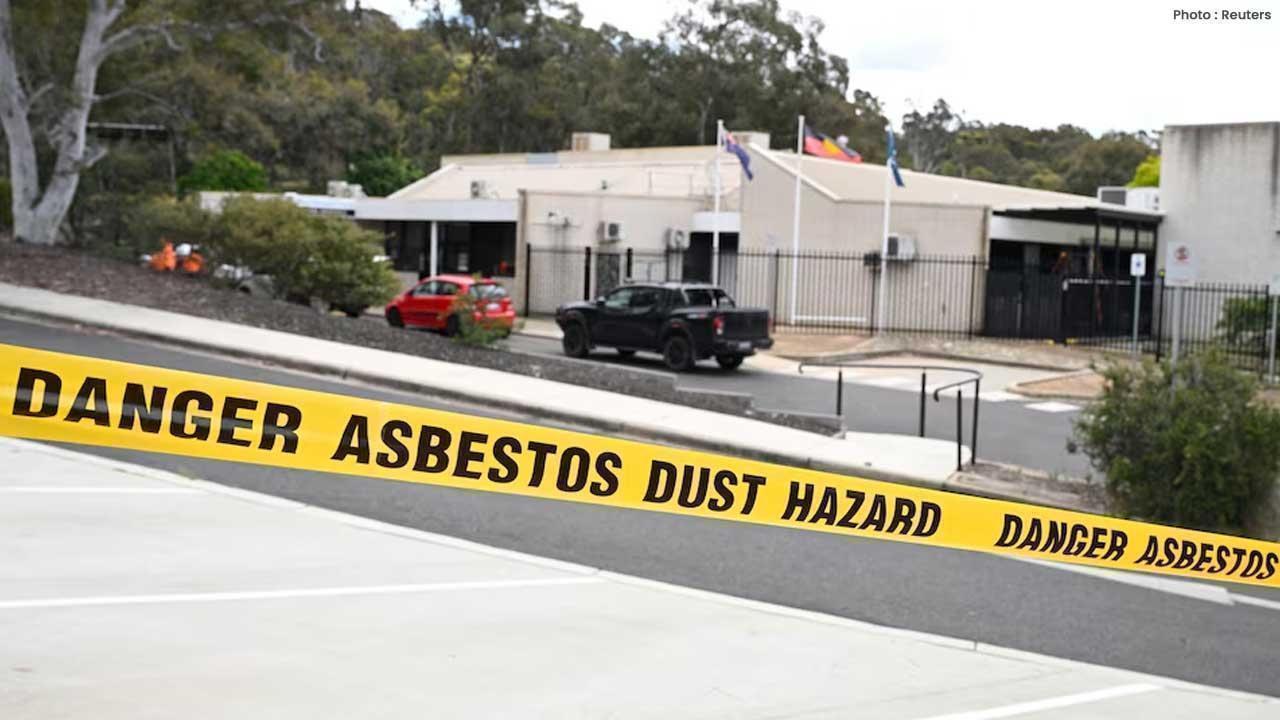
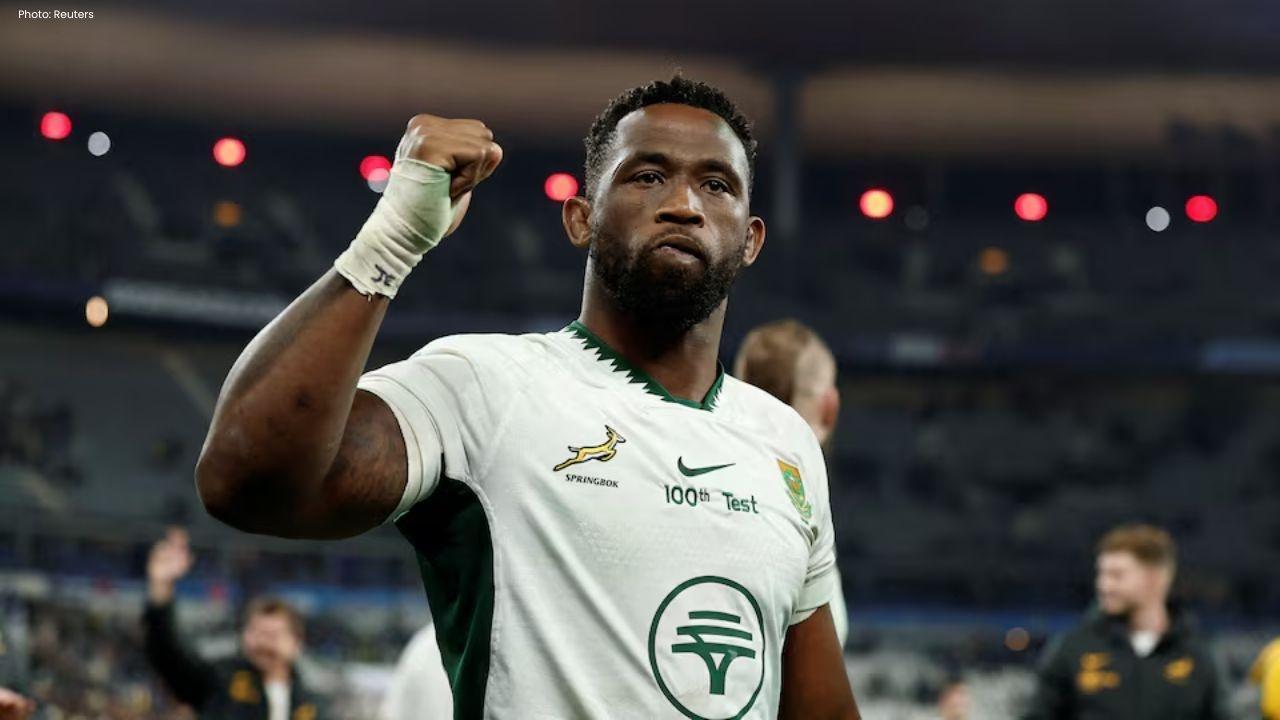
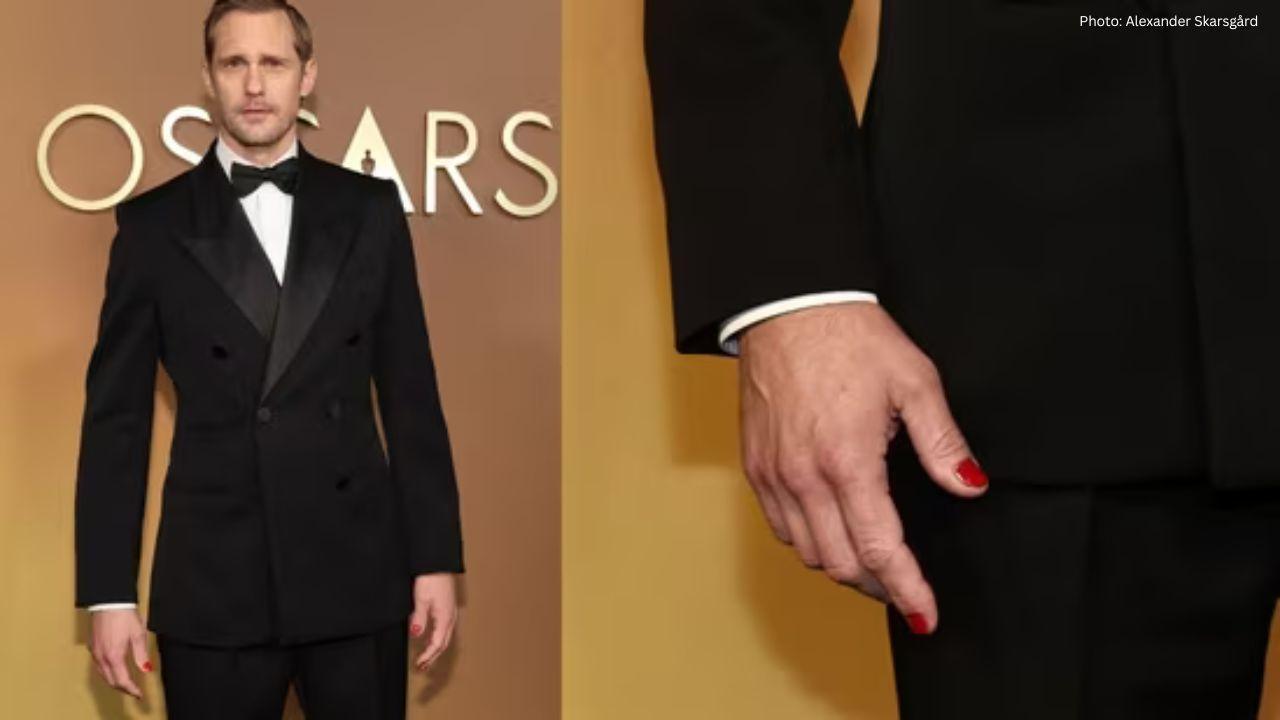
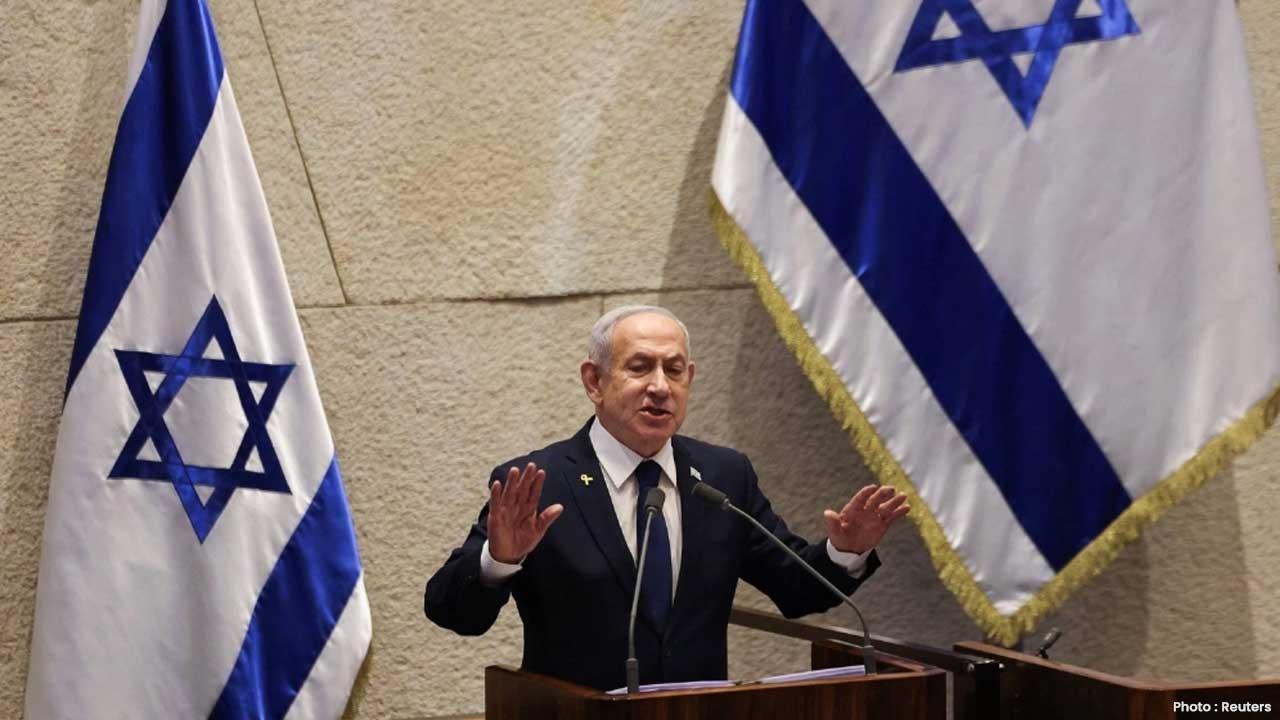
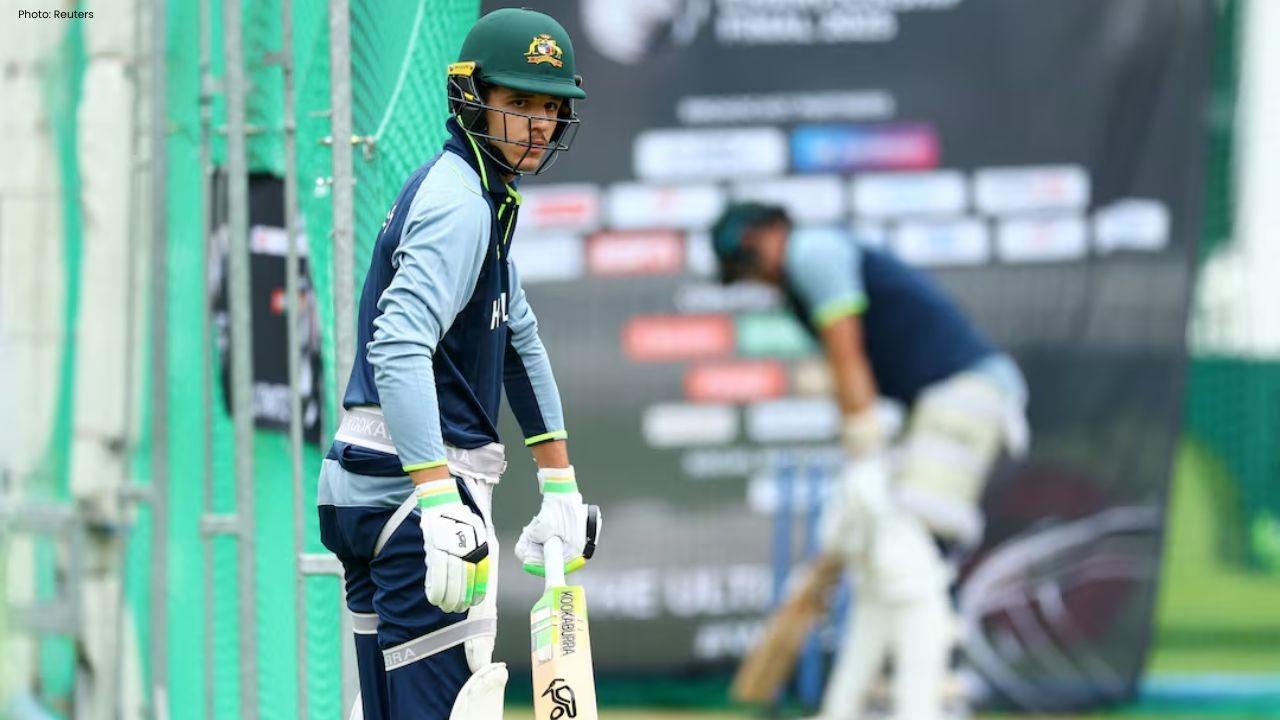
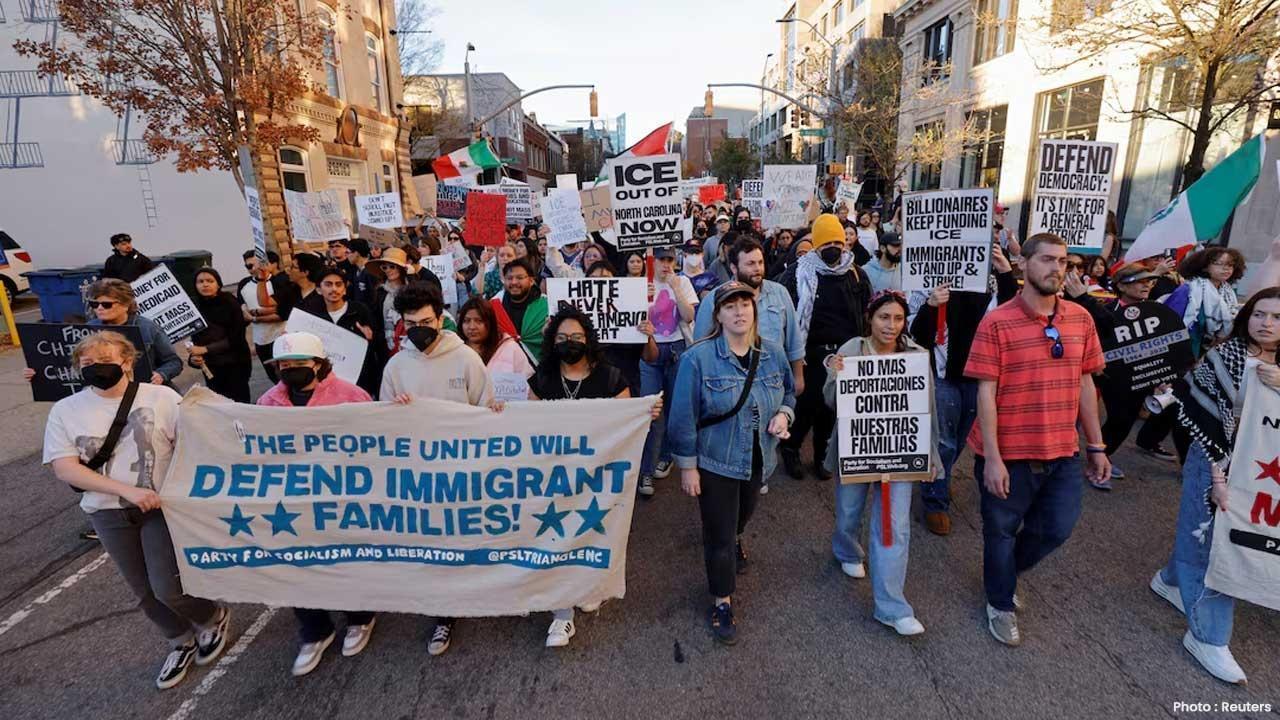

Josh Naylor Returns to Seattle Mariners with New Five-Year Deal
Josh Naylor signs a five-year contract to return to the Mariners, aiming to leverage his performance

Siya Kolisi Scores Big in Rugby and Enjoys ATP Finals Festivities
Siya Kolisi leads South Africa to victory and relishes in lively ATP Finals at Turin, showcasing his

Australia's Young Talent Shines in England Warm-Up Match Selection
Australia names Sam Konstas in the PM XI for an important warm-up against England, highlighting his

Sinner Triumphs Over Alcaraz in Turin Finale
Jannik Sinner clinches the season-ending title in Turin, defeating Carlos Alcaraz in a fiercely cont

Red Wings Triumph Over Rangers with Raymond’s Late Goal
The Detroit Red Wings secured a 2-1 win against the Rangers, highlighted by Lucas Raymond's late thi

Minnesota Wild Secures OT Victory Over Vegas with Boldy and Kaprizov
The Minnesota Wild triumphed 3-2 in overtime against the Vegas Golden Knights, thanks to a vital pla